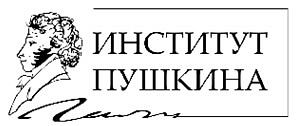Moscow, March 31, 2015

This new approach broadens the Institute’s reach from Slavic language and literature scholars to Russian language beginners and businessmen in Russia. However, what was best about the old system has fortunately not been thrown out with the bath. There is an emphasis on learning about Russian culture—this time around entirely Russian culture, and not an inharmonious mixture of Pushkin, Turgenev, and Lenin. Students will learn about such immortal figures as the brave warrior Ilya Murometz. Of course, they probably will not be told that Ilya Murometz received the monastic tonsure before his death, that he was canonized a saint by the Russian Orthodox Church, and that his relics lay in the Kiev Caves, because the Pushkin Institute remains secular, but the foreign student has plenty of opportunities to study Russian Orthodoxy in one of the many churches of Moscow.
While the highly respected old-school professors, such as Doctor of Linguistics Vitaly Grigorievch Kostomarov, continue on as key developers of the language programs, the Institute has also contracted UNIWEB, an IT company specializing in internet learning programs. This enables people to study Russian language from anywhere in the world. It includes a unique program that allows students to test their pronunciation online. This program can be found at the Studies in Russian section of the Pushkin Institute site.
The Institute is also reaching out to bilingual children, of which there are thousands around the world. From the beginning of Perestroika, when the borders opened and Russians emigrated to all four corners of the globe, children have been born to mixed marriages, and are growing up bilingual. The Institute is working together with programs in different countries that will enable these children to bring their knowledge of Russian out of the kitchen and into the classroom, and connect them with their roots and culture. In Switzerland and the Netherlands, on-site programs have opened with the name “Matryoshka”. Matryoshka programs are also opening up in different parts of the world, including the U.S.



